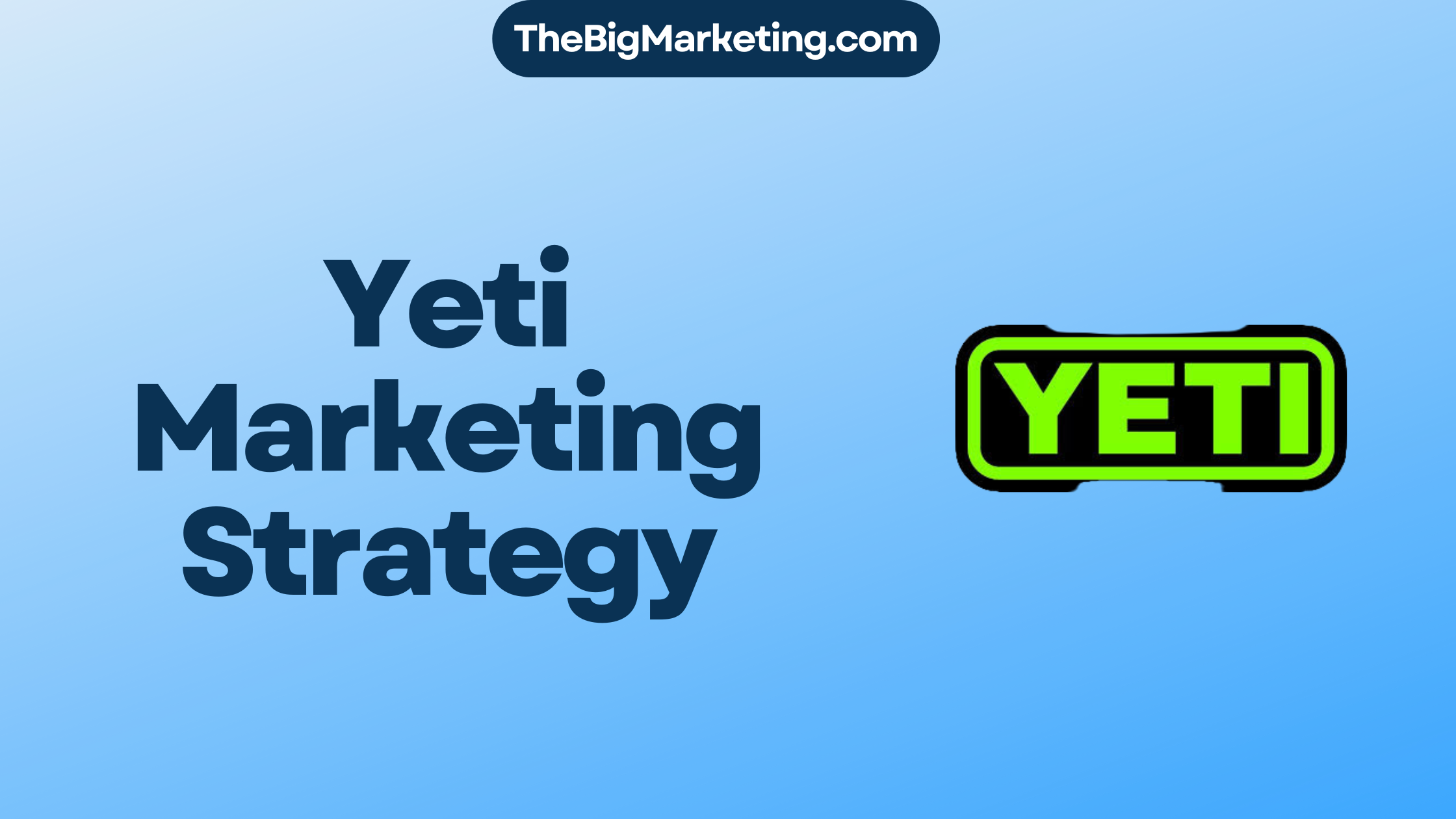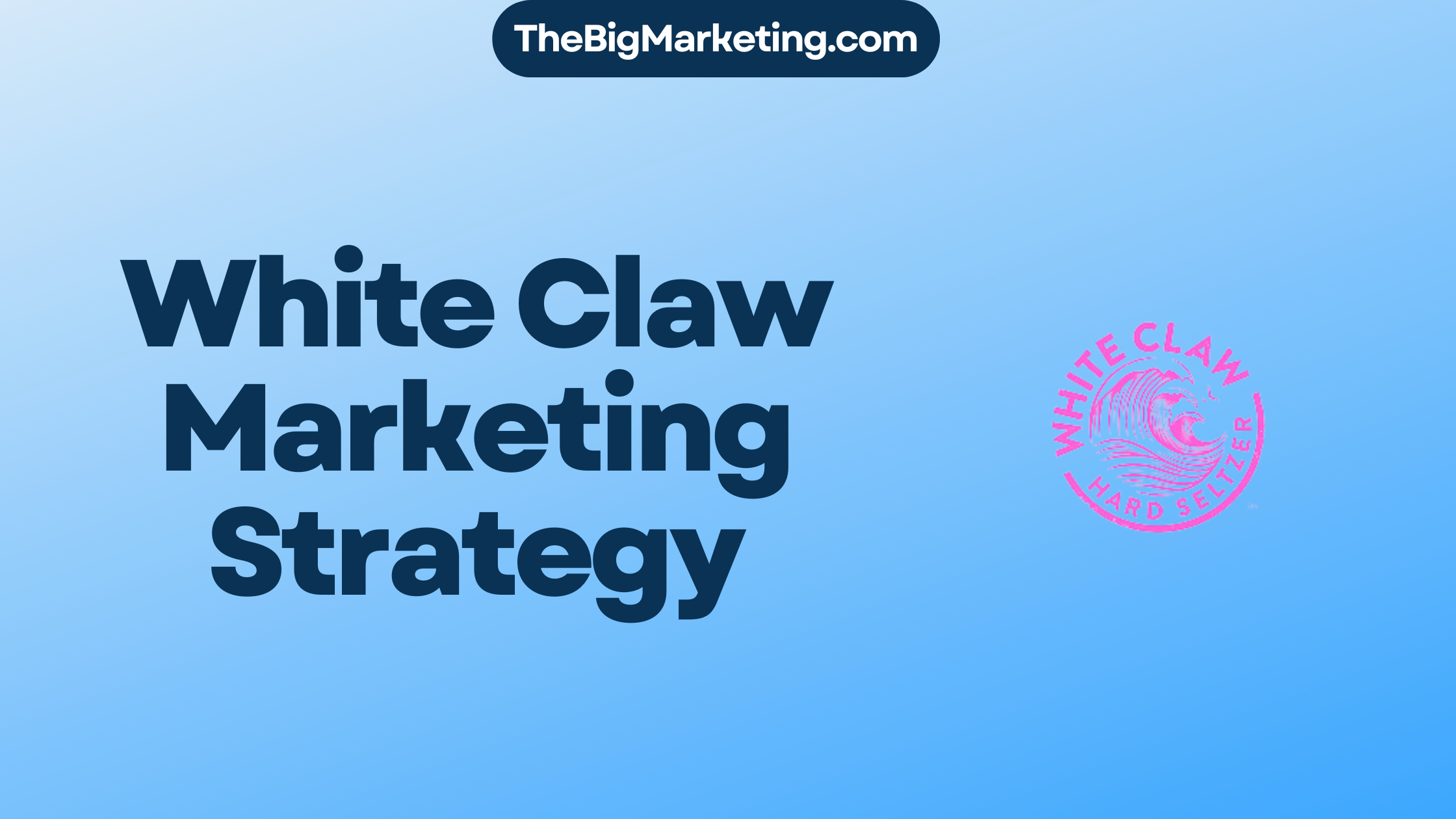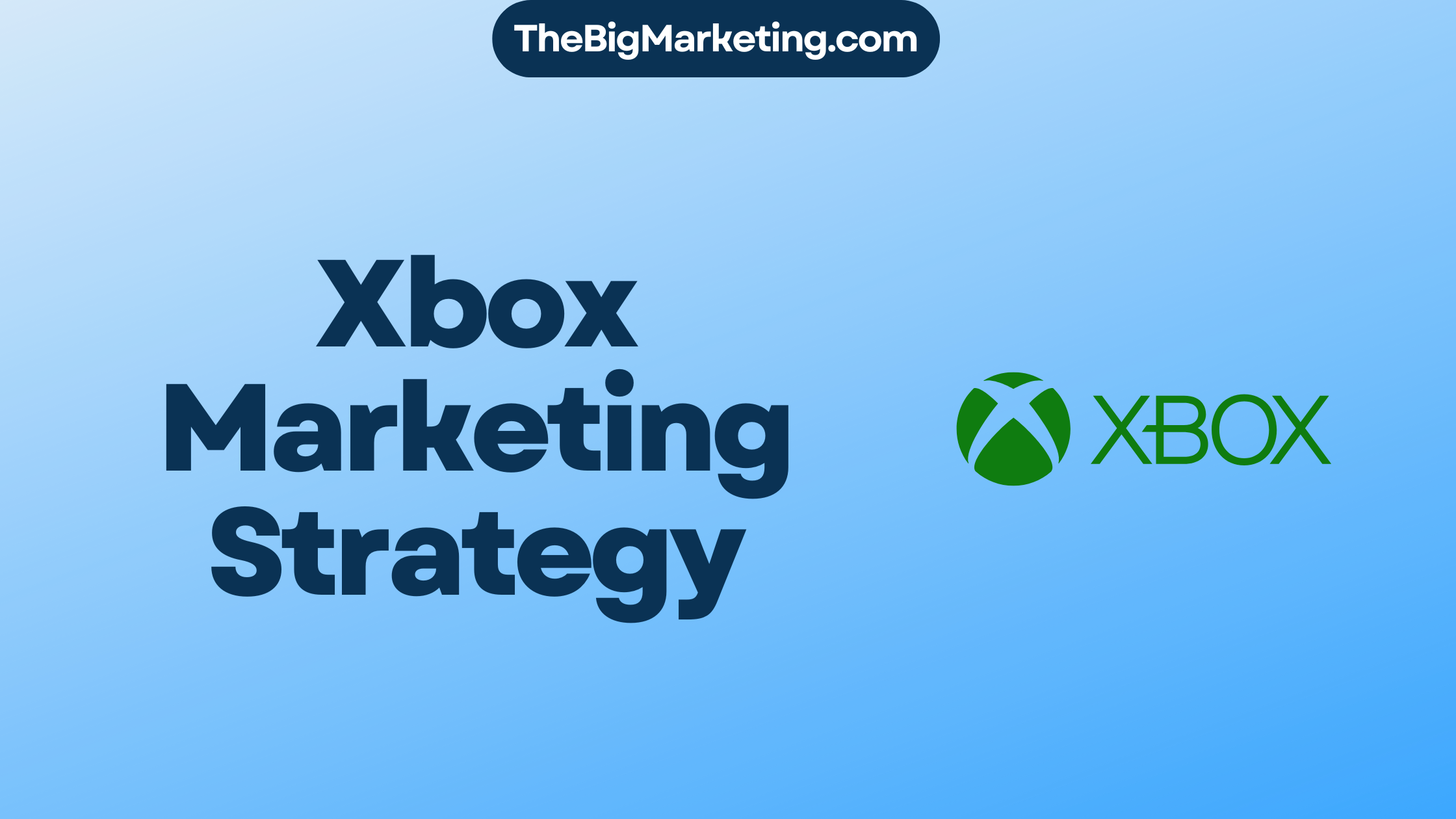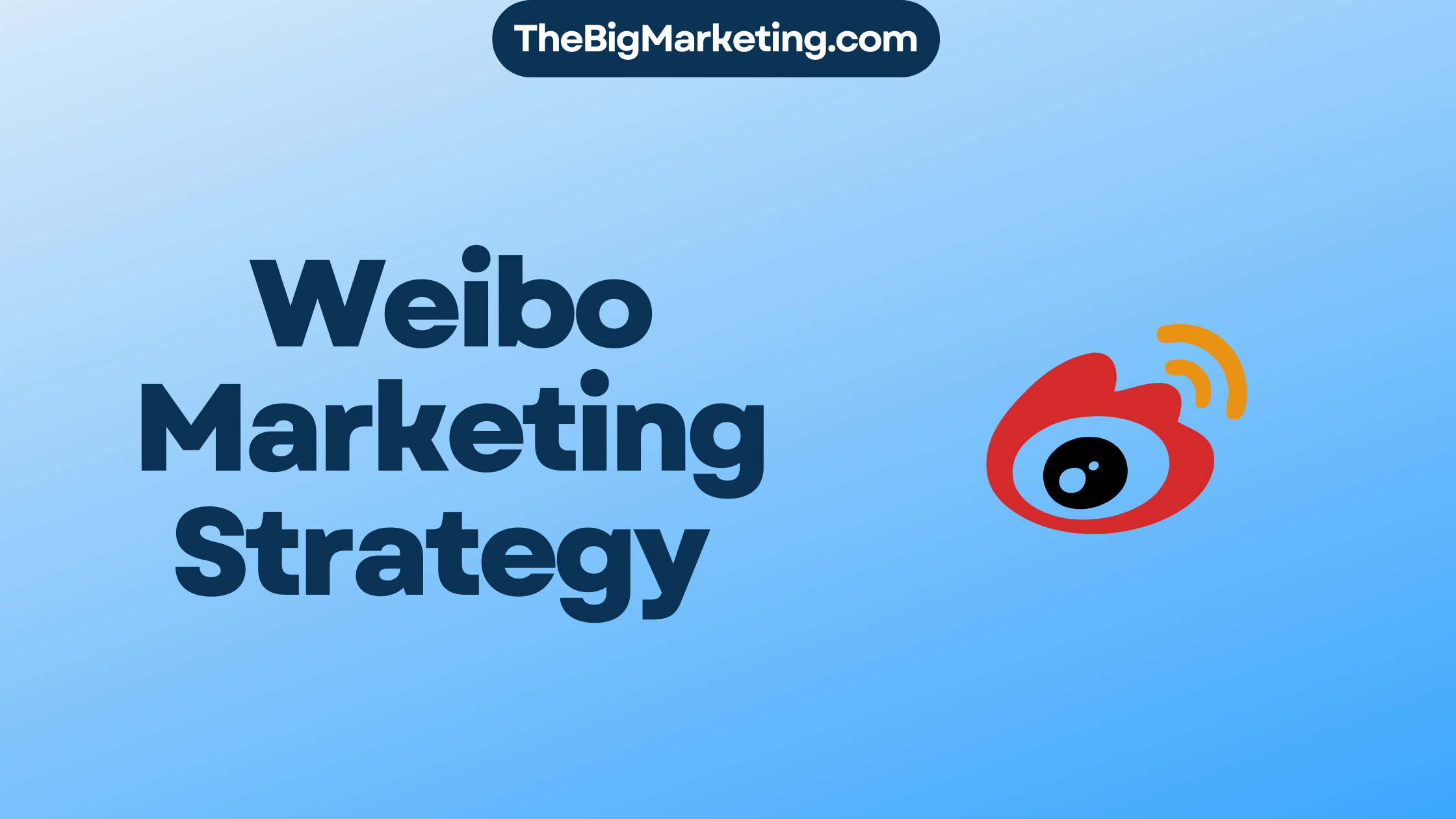Lululemon, the $50 billion athleisure brand, has implemented a marketing strategy that embraces new platforms and challenges traditional approaches. By tapping into the current trends and preferences of their target audience, Lululemon has found success in navigating the rise of knock-offs or “dupes” in the athletic apparel market.
In this case study, we will explore how Lululemon’s marketing strategy has allowed them to attract new customers and outshine the knock-offs. We will also examine their approach to embracing the new ecosystem of marketing and how it has led to their continued success.
Key Takeaways:
- Lululemon has embraced new platforms and trends in their marketing strategy
- Their Dupe Swap event showcased the strength of their brand culture and product quality
- Lululemon has attracted new customers and outshined knock-offs through their innovative approach
- The Zen approach to marketing emphasizes adaptability and embracing challenges
- Applying the Zen mindset to B2B marketing can lead to success
Embracing the New Ecosystem: The Zen Approach to Marketing
In the ever-evolving world of marketing, Lululemon has embraced the Zen approach to marketing by understanding the importance of going with the flow instead of fighting against it. As the digital era transforms the marketing landscape, traditional strategies are no longer effective in reaching and engaging the target audience. Lululemon recognized this shift early on and actively adapted to embrace new platforms and trends.
By embracing the new ecosystem of marketing, Lululemon has positioned itself as a leader in the industry. They have recognized the power of digital platforms and the opportunities they present for connecting with their target audience in meaningful ways. Instead of resisting the changes brought about by the digital era, Lululemon has gone with the flow, allowing them to stay relevant and stay ahead of the competition.
With a mindset rooted in the Zen philosophy, Lululemon understands the importance of embracing challenges and turning them into opportunities. The rise of knock-offs in the athletic apparel market was a significant challenge for the brand, but instead of fighting against it, Lululemon leveraged it to strengthen their brand and engage their target audience.
Lululemon’s Zen marketing approach has enabled them to navigate the challenges presented by knock-offs by capitalizing on the strong brand culture they have cultivated over the years. By organizing a “Dupe Swap” event at their store in Los Angeles, Lululemon showcased their authenticity, product quality, and commitment to their community. This event not only attracted new customers but also served as a powerful statement against the knock-offs in the market.
Embracing the new ecosystem of marketing requires a willingness to adapt, innovate, and stay ahead of the curve. Lululemon’s success demonstrates the power of embracing new platforms and trends, going with the flow, and finding unique ways to engage the target audience. The Zen approach to marketing allows brands to connect with their customers on a deeper level and build authentic relationships that promote loyalty and long-term success.
The Rise of Dupes and Lululemon’s Response
Lululemon, like many other major brands, faced the challenge of knock-offs or dupes in the market. However, instead of resorting to fierce competition, Lululemon took a different approach to address the issue. They organized a unique event called the Dupe Swap at their flagship store in Los Angeles.
The Dupe Swap event aimed to engage with customers who owned knock-off versions of Lululemon’s popular Align pants. Participants were given the opportunity to trade in their counterfeit items for authentic Lululemon products. This innovative initiative not only enabled customers to receive the genuine Lululemon experience but also allowed the company to showcase the strength of its brand culture, online and in-store communities, fitness and yoga resources, relatable ambassadors, and exceptional product quality.
By embracing dupe fans instead of outright rejecting them, Lululemon displayed its understanding of the needs and desires of its target audience. The Dupe Swap event served as a powerful testament to the authenticity and integrity of the Lululemon brand, emphasizing the superior value and originality of their products compared to knock-offs.
Overall, Lululemon’s response to the rise of dupes demonstrated their commitment to fostering a strong relationship with their customers and community. Rather than engaging in a battle against counterfeit products, they turned the challenge into an opportunity to connect with consumers and reinforce their brand positioning.
| Benefits of Lululemon’s Dupe Swap Event | Impact |
|---|---|
| Engagement with customers owning knock-offs | Increased brand loyalty and trust |
| Showcasing the strength of brand culture and communities | Enhanced brand image and community support |
| Opportunity to demonstrate superior product quality | Bolstered reputation and product credibility |
| Building authentic connections with target audience | Deeper customer relationships and long-term customer retention |
| Highlighting the value of genuine Lululemon products | Increase in demand for authentic items |
The Success of Lululemon’s Dupe Swap
Lululemon’s Dupe Swap event proved to be a resounding success, demonstrating the brand’s ability to attract new customers while solidifying their reputation as a leader in the athleisure market. With half of the participants being new customers, Lululemon effectively expanded its customer base and tapped into a younger demographic, with half of them being under the age of 30.
By embracing the challenge of knock-offs and offering a unique solution, Lululemon showcased the value of their brand and community. The Dupe Swap event not only allowed customers to exchange their knock-off Align pants for the authentic ones but also served as a powerful testament to the brand’s commitment to providing high-quality products and fostering a sense of authenticity.
In a noisy market where knock-offs threaten brand loyalty, Lululemon’s brand and community served as a moat, providing a competitive advantage and solidifying their position as the go-to athleisure brand. Their loyal community of customers and the strong emotional connection they have with the brand acted as a barrier against the allure of knock-offs, attracting customers who seek more than just a product, but an experience and a sense of belonging.
| Key Success Metrics | Results |
|---|---|
| New Customers Acquired | 50% |
| Participants Under 30 | 50% |
Applying the Zen Approach to B2B Marketing
The principles of Zen marketing that have proven successful for Lululemon can also be applied to B2B marketing strategies. By embracing challenges and finding hidden opportunities, B2B marketers can adopt a mindset that allows them to turn roadblocks into advantages. This approach focuses on understanding the needs and desires of the target audience, being adaptable and innovative, fostering authenticity and community, and actively listening to customer feedback.
B2B marketers can start by understanding the challenges within their industry and identifying areas where they can bring value to their clients. Embracing these challenges enables marketers to think outside the box and find creative solutions that differentiate their brand from competitors. By recognizing and seizing hidden opportunities, B2B marketers can uncover unique ways to address pain points and provide tailored solutions to their clients.
A crucial aspect of the Zen marketing approach in the B2B context is truly understanding the needs and desires of the target audience. This requires thorough research and analysis to gain insights into the specific challenges that businesses in the industry face and the goals they aim to achieve. By aligning marketing efforts with these needs, B2B marketers can develop strategies and messaging that resonate with their target audience and effectively address their pain points.
Adaptability and innovation are also essential elements of Zen marketing for B2B. In a rapidly changing business landscape, B2B marketers must be open to exploring new platforms, technologies, and marketing strategies. By staying ahead of the curve and adapting to emerging trends, B2B marketers can seize opportunities and differentiate themselves from competitors.
The Zen marketing approach also emphasizes the importance of fostering authenticity and community. B2B marketers should strive to build genuine connections with their clients and create a sense of trust and loyalty. This can be achieved by showcasing the expertise and values of the brand, leveraging client testimonials and case studies, and actively engaging with the business community through networking events and online platforms.
Lastly, active listening to customer feedback is crucial for B2B marketers embracing the Zen approach. By soliciting feedback and actively addressing customer concerns, marketers can continuously improve their products, services, and marketing strategies. This demonstrates a commitment to meeting client needs and building long-term relationships based on mutual trust.
Benefits of Applying the Zen Approach to B2B Marketing
By applying the Zen approach to B2B marketing, businesses can reap several benefits. Firstly, embracing challenges and finding hidden opportunities allows B2B marketers to stay ahead of the competition and position their brand as an industry leader. Secondly, by understanding the needs and desires of the target audience, businesses can develop tailored strategies that effectively address customer pain points and drive positive outcomes.
Furthermore, the adaptability and innovation inherent in the Zen approach enable businesses to embrace new technologies and platforms, gaining a competitive edge in the digital era. Fostering authenticity and building a strong community around the brand establishes trust and credibility, leading to stronger client relationships and increased customer loyalty.
The active listening component of the Zen approach enables businesses to continuously improve and refine their marketing strategies based on customer feedback. This allows them to stay responsive to client needs and deliver exceptional value, fostering long-term partnerships and business growth.
| Benefits of Zen Marketing for B2B |
|---|
| Embracing challenges and finding hidden opportunities |
| Understanding the needs and desires of the target audience |
| Adaptability and innovation |
| Fostering authenticity and community |
| Active listening and customer feedback |
Key Principles of the Zen Way in Marketing
The Zen way of marketing embraces several key principles that can pave the path to marketing success. By incorporating these principles into their strategies, marketers can create a harmonious connection with their target audience and thrive in the ever-evolving business landscape.
Awareness
Successful marketers understand the pulse of their target audience. By being aware of current trends, interests, and pain points, they can tailor their messaging and offerings to resonate with their customers effectively. This awareness enables marketers to stay one step ahead and deliver relevant and engaging content.
Adaptability
In the fast-paced marketing world, adaptability is crucial. Marketers must be open to change and embrace new technologies, platforms, and trends. By staying agile and flexible, they can respond to shifting market dynamics, stay relevant, and seize new opportunities that arise.
Authenticity
Building genuine connections with the audience is paramount in today’s marketing landscape. Authenticity enables marketers to establish trust, credibility, and long-term loyalty. By showcasing real stories, values, and purpose, brands can forge authentic relationships that go beyond transactional interactions.
Community
Nurturing a vibrant and engaged community is a cornerstone of successful marketing. Marketers should strive to create spaces where customers can connect, share their experiences, and feel a sense of belonging. By fostering a community of advocates, brands can amplify their reach, generate valuable word-of-mouth referrals, and cultivate a loyal customer base.
Innovation
Innovation and creativity are catalysts for marketing success. Marketers should constantly push boundaries, explore new ideas, and challenge conventional thinking. By embracing innovation, brands can stand out from the competition, captivate their audience, and create breakthrough campaigns that leave a lasting impact.
Listening
Active listening is a vital skill for marketers. By attentively listening to customer feedback, marketers can gain valuable insights, understand pain points, and identify areas for improvement. By incorporating customer feedback into their strategies, brands can continuously enhance their offerings and deliver an exceptional customer experience.
Balance
Finding a balance in marketing is essential. Marketers should strike a balance between being proactive and responsive to their audience’s needs. Too much proactivity may come across as pushy, while being purely reactive can lead to missed opportunities. By maintaining a delicate balance, marketers can build trust and create meaningful connections with their customers.
Embracing the Zen Mindset in Marketing Efforts
Embracing the Zen mindset in marketing requires a continuous practice of aligning oneself with the currents of the market. By embracing challenges and finding hidden opportunities, marketers can navigate the ever-changing landscape and allow their marketing efforts to flow effortlessly.
Marketing is like a dance, where finding the perfect rhythm and synchronizing with the market’s beat is crucial. Just as a skilled dancer adapts to the music, successful marketers align their strategies with the current trends and preferences of their target audience.
Instead of resisting or trying to fight against market forces, embracing challenges becomes an opportunity for growth. By embracing challenges, marketers can uncover hidden opportunities that may have otherwise gone unnoticed. They can tap into new market segments, explore innovative approaches, and differentiate themselves from competitors.
This Zen approach to marketing requires a mindset shift – letting go of resistance and embracing the natural currents that surround us. By aligning with the market’s flow and embracing challenges, marketers can achieve marketing success.
This image visually represents the concept of embracing the Zen mindset in marketing efforts:
Benefits of Embracing the Zen Mindset in Marketing:
- Increased agility and adaptability to changing market conditions
- Enhanced creativity and innovative thinking
- Improved customer engagement and brand loyalty
- Greater resilience in the face of challenges and competition
- Opportunity for continuous growth and improvement
Key Elements of Embracing the Zen Mindset in Marketing:
- Active listening and understanding of customer needs and desires
- Authenticity and building genuine connections with the audience
- Creating a vibrant and engaged community around the brand
- Promoting innovation and out-of-the-box thinking
- Being open to feedback and constantly learning from customers
By embracing the Zen mindset and aligning with market currents, marketers can unlock the full potential of their marketing efforts and achieve lasting success in the dynamic landscape of today’s business world.
Comparing Traditional Marketing vs. Zen Marketing
| Traditional Marketing | Zen Marketing |
|---|---|
| Focuses on pushing sales and promotional messages | Focuses on building relationships and providing value |
| Relies heavily on one-way communication | Values open dialogue and two-way communication |
| Resistant to change and rigid in strategies | Adaptable and embraces the evolution of the market |
| Views challenges as obstacles and threats | Views challenges as opportunities for growth |
| Focuses on short-term gains | Focuses on long-term relationships and sustainability |
Reflection and Mindset Shift in Marketing Strategies
As marketers, it is crucial to take a step back and reflect on our current marketing efforts. By truly understanding and acknowledging the battles we may constantly be fighting, we can gain valuable insights into areas that require our attention and improvement.
Instead of viewing challenges as obstacles, we should embrace them as opportunities for growth and innovation. Shifting our mindset from resistance to acceptance allows us to uncover hidden opportunities that may have been overlooked. It opens the door to creative thinking and finding unique solutions to navigate the ever-changing marketing landscape.
To facilitate this mindset shift, it is essential to reassess our current marketing strategies. We must be open to change and actively seek new approaches that align with the natural currents of the market. Whether it’s exploring emerging platforms, embracing new trends, or adopting novel communication techniques, staying adaptable and flexible is key.
In our quest for continual improvement, it is important to remember that marketing is not a rigid process. It requires a dynamic mindset that demands constant learning and evolution. By reflecting on our efforts, embracing challenges, and shifting our mindset, we can position ourselves for long-term success in the ever-evolving marketing landscape.
Recommended Actions:
- Conduct a thorough analysis of your current marketing strategies and identify areas for improvement.
- Embrace challenges as opportunities for growth and innovation.
- Stay open to change and actively seek out new approaches that tap into the market’s natural currents.
- Encourage a culture of continuous learning and evolution within your marketing team.
Real-life Example:
To illustrate the power of reflection and a mindset shift, let’s look at a real-life example from Lululemon. When faced with the challenge of knock-offs or “dupes” in the athletic apparel market, Lululemon didn’t resist or fight back. Instead, they organized a Dupe Swap event, allowing customers to trade in their knock-offs for the authentic Lululemon products. This inventive approach not only showcased the strength of their brand and community but also attracted new customers and highlighted the value of their product quality.
| Benefits of Reflection and Mindset Shift in Marketing Strategies | Actions to Implement |
|---|---|
| Uncover hidden opportunities | Conduct a thorough analysis of current marketing strategies |
| Promote adaptability and innovation | Embrace challenges as opportunities for growth |
| Stay ahead of market trends | Stay open to change and seek new approaches |
| Enhance brand reputation and attract new customers | Encourage a culture of continuous learning and evolution |
Conclusion: The Power of the Zen Approach in Marketing
The digital era has revolutionized marketing, presenting both challenges and hidden opportunities for brands. Lululemon’s success story showcases the power of the Zen approach in navigating this ever-changing landscape. By embracing challenges head-on and adapting to emerging trends, brands can unlock new avenues for growth.
The Zen approach calls for a mindset shift, emphasizing adaptability and authenticity. It encourages brands to engage with their communities, foster innovation, and actively listen to customer feedback. By finding a balance between being proactive and responsive, brands can align their marketing efforts with the natural currents of the market.
Embracing the Zen way empowers brands to increase their brand awareness and customer engagement. It enables them to discover hidden opportunities that may have been overlooked and tap into the pulse of the target audience. In this dynamic digital era, the Zen approach is a powerful tool for marketers looking to achieve marketing success and drive business growth.
FAQ
What is the main focus of Lululemon’s marketing strategy?
Lululemon’s marketing strategy focuses on embracing new platforms and going with the flow of current trends.
How did Lululemon respond to the challenge of knock-offs in the market?
Lululemon organized a Dupe Swap event where customers could trade in their knock-offs for authentic Lululemon products.
What was the outcome of Lululemon’s Dupe Swap event?
The event attracted new customers, with 50% of participants being new to the brand, and showcased the strength of Lululemon’s brand and community.
Can the Zen approach to marketing be applied to B2B strategies?
Yes, the Zen approach emphasizes embracing challenges and finding hidden opportunities, which can be utilized in B2B marketing strategies.
What are the key principles of the Zen way in marketing?
The key principles include awareness of the target audience, adaptability, authenticity, community engagement, innovation, listening to customer feedback, and finding a balance between proactivity and responsiveness.
How can marketers embrace the Zen mindset in their marketing efforts?
Marketers can embrace the Zen mindset by actively aligning themselves with the currents of the market, embracing challenges, and letting their marketing efforts flow effortlessly.
Why is reflection and mindset shift important in marketing strategies?
Reflecting on current marketing strategies, embracing challenges, and shifting mindset allows marketers to uncover hidden opportunities and adapt to the evolving market.
What is the power of the Zen approach in marketing?
The Zen approach, as exemplified by Lululemon’s success, allows brands to embrace challenges, find hidden opportunities, and achieve marketing success in the digital era.







